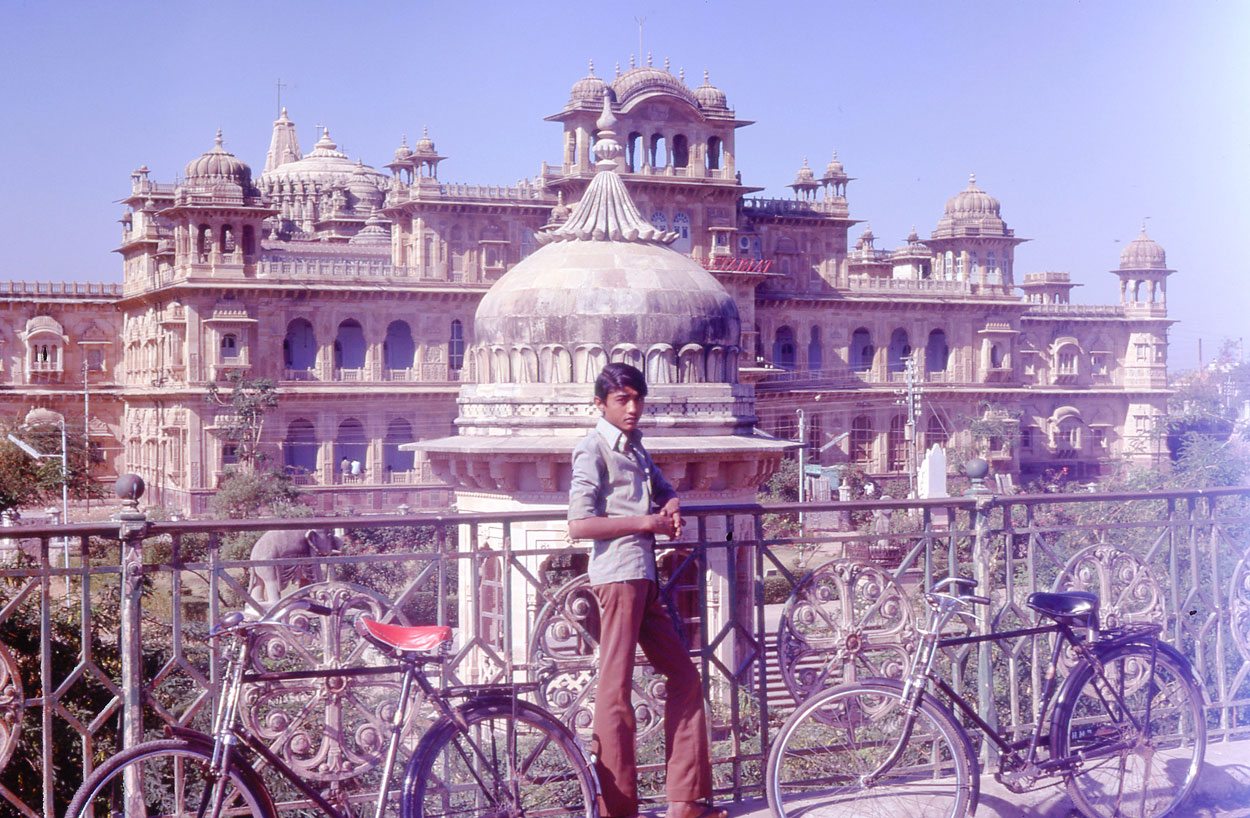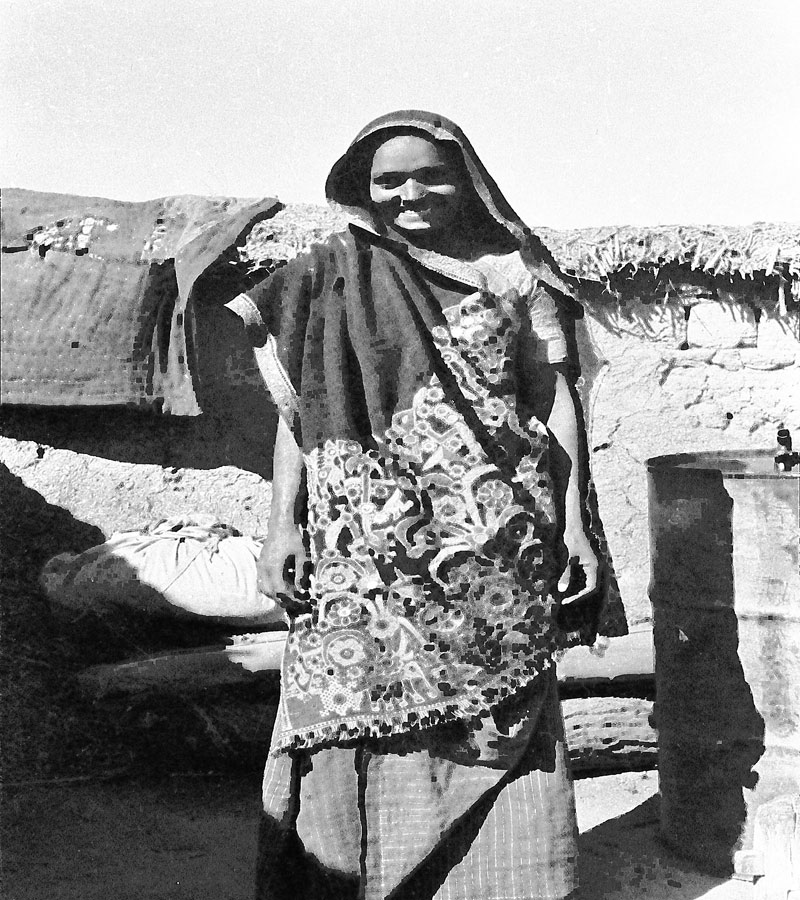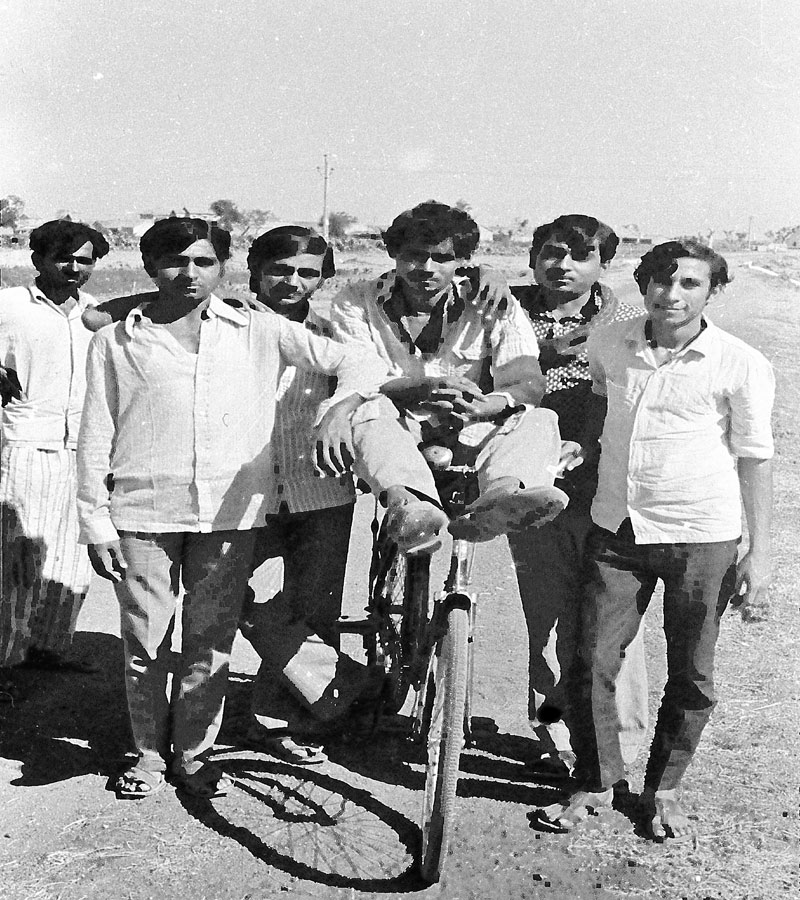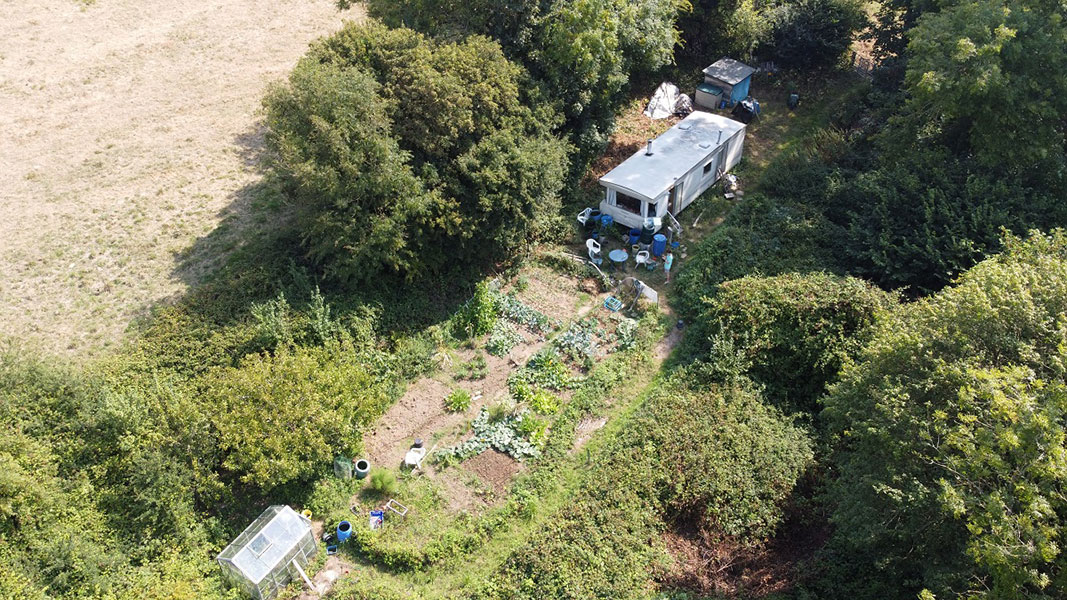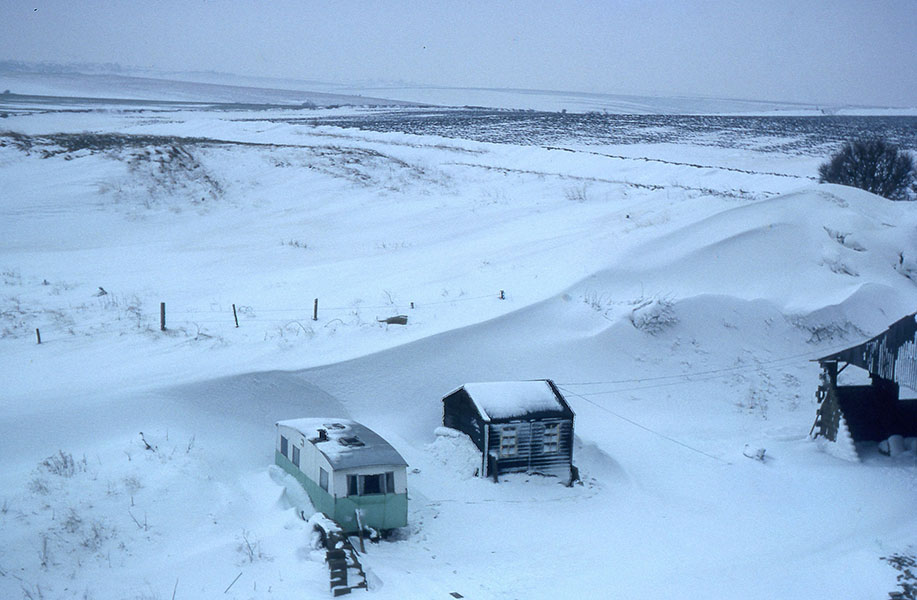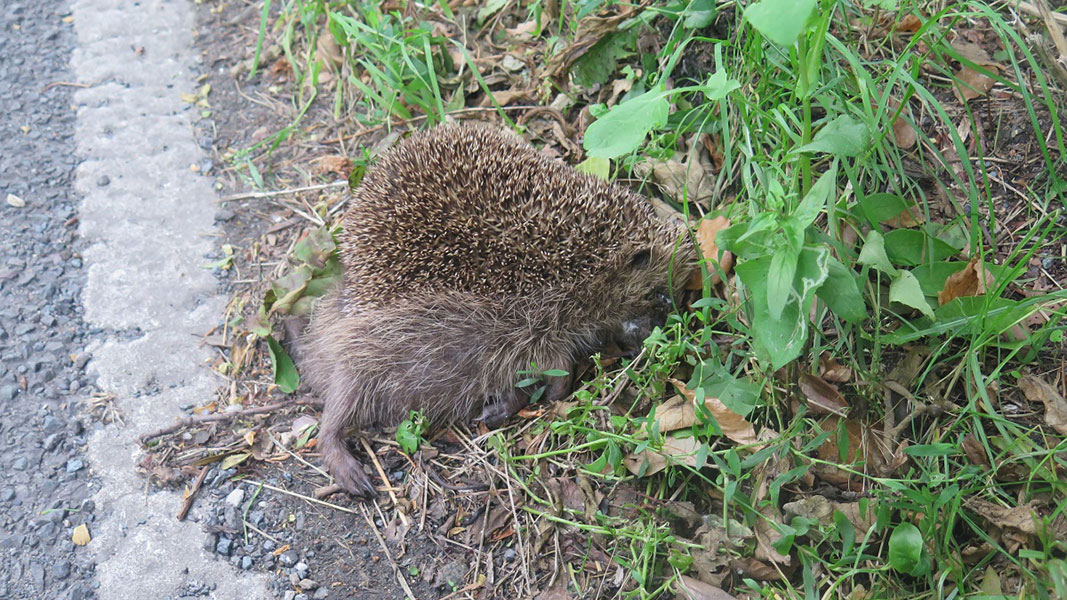40. Cycling From Kutch To Diu
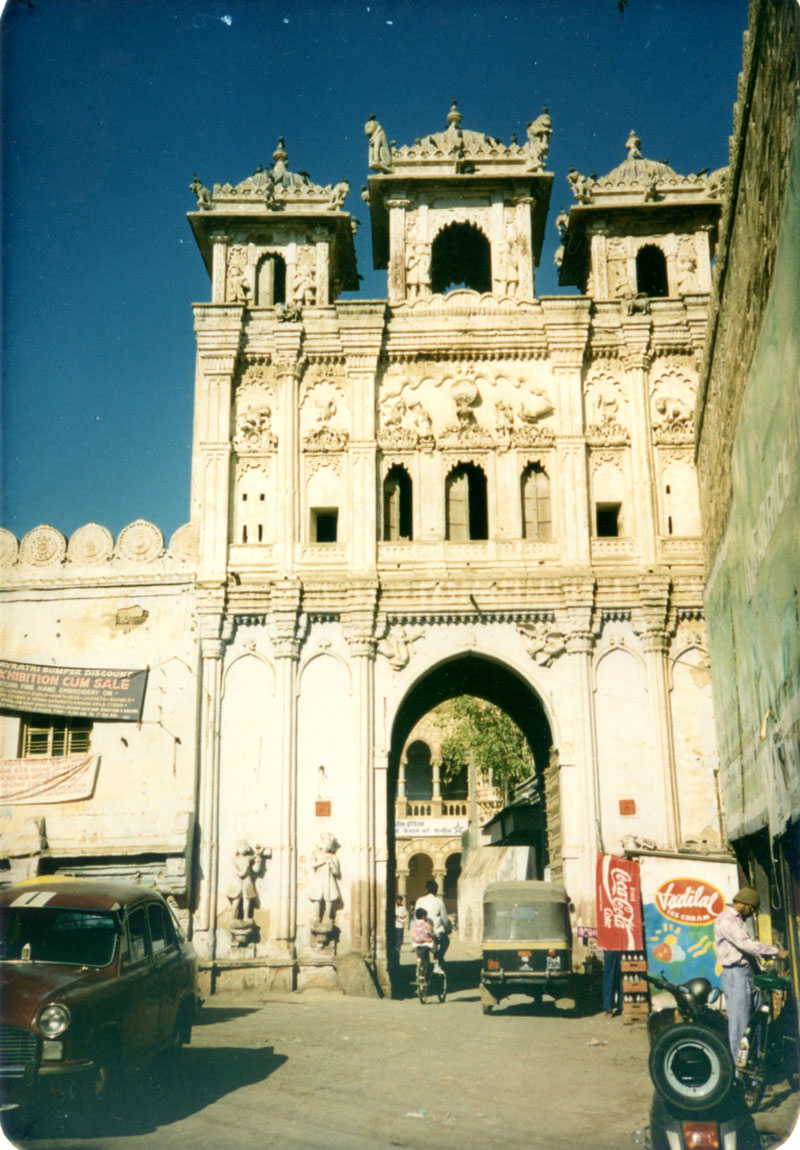
39. Seeking Seaside
January 21, 2021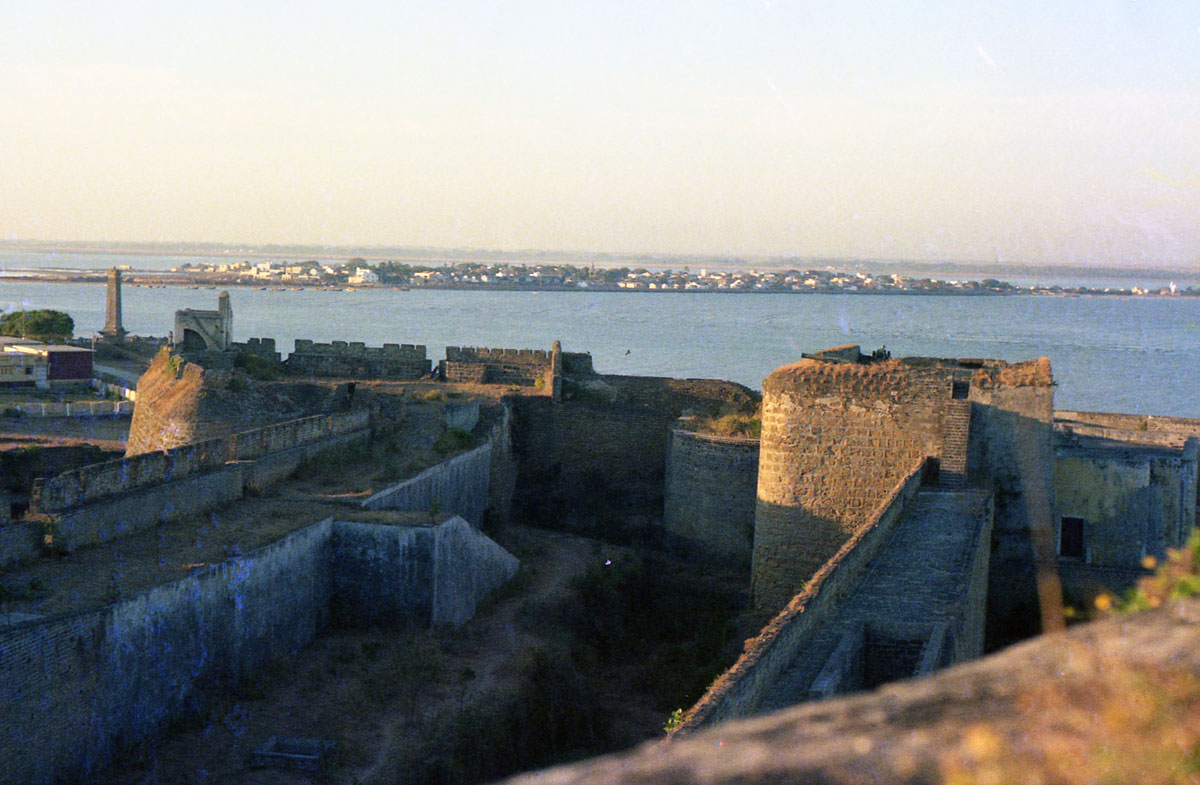
41. Christmas In Diu
February 4, 2021L eaving Samarkhiyali towards the 8 km causeway from Kutch across a tidal estuary to the mainland, I saw men recovering sections of two pylons hurled across the road by a recent cyclone. The water was low; mud-skippers flipped over the flats happily eating their smaller relatives to be devoured in turn by striding blue heron. Soon after crossing a tyre exploded. A kindly lorry driver stopped, delivering me to metal-worker cousins in Morbi. They found me a room. Next morning one of the boys guided me around the town, including a cyclone-ruined suspension bridge once spanning, now in, the dry river. I left towards Mitana and another bloody puncture. Nowhere to stay, a light-eyed man on a lorry took me to his village, Neknam, introducing some young teachers. They invited me to their home, the erstwhile Raja's bungalow.
I remember that week in Neknam with affection. The teachers and their pupils interrogated me, each family in turn producing good Gujarati vegetarian meals of millet roti, white buffalo butter, dals and variably sweet vegetables. After meals came paan,, a habit I had acquired but later quit when the stimulant caused insomnia. Every day we bathed and washed our clothes at an irrigation tube well or descended steps to swim among little fish in a deep cistern carved in the rock.
The main local crop was peanuts. One young farmer, after a bumper crop of some 10,000 kg, gave us some to roast in a fire; the rest went to Jamnagar's oil mills. The teachers, supporters of the Janata Party, often involved in pre-election work, took me one day to an unusual wedding. Hiring six cycles from nearby Tankara, we rode to the hill-top temple of Jadeshwar for the ceremony, the couple leaving in a storm of thunderflashes. We returned to Neknam on a lorry under bright starlight.
One teacher, a potter by caste, showed me potters at work, then introduced farming and shepherd women who displayed the beadwork as well as woven, embroidered and applique textiles they had made. One had fashioned an intricate 'fridge' from clay. A farmer's wife dressed up their pair of bullocks in embroidered finery then insisted on giving me some of her work.
When I left, some of them posed beside my cycle. Great, noisy flocks of cranes circled the fields as I approached evening Jamnagar, once a princely capital, where the palace gate was guarded by high-relief carvings of turbanned men. More modest, my flea-filled room in Gita Lodge didn't encourage a long stay so I left through a warm morning, stopping to bathe in a river then taking a dharamshala room in Khambhaliya.
I woke feeling off-colour, weak, and after 20 km dozed for three hours beside the road, occasionally, incomprehensibly nagged by an elderly cow-lady. Another puncture struck just short of Bhatiya, where I arrived exhausted and was still feeling rough when setting off again next day. Passing a small area of salt flat then cheerfully cycling beside the sea, another puncture intervened! Reaching holy Dwarka on a lorry-load of salt, once accommodated, I explored the little pilgrim town on a peninsula dominated by the temple's tower flying a huge, yellow, silken pennant. It overlooked a long line of stepped stone bathing ghats where saddhus dozed, shared chelums or simply wandered.
The small window of my five-berth room looked straight into a kitchen where, from six onwards, boys noisily prepared breakfasts. It was pointless lying in. Leaving, a barber gifted a free shave because he had a friend in Liverpool. Putting the cycle on top, I took a bus to Porbandar through land badly damaged by the cyclone: roofs were tile-less, trees lay in rows, walls had collapsed, pylons bowed their heads and telegraph poles stood at crazy angles. Porbandar is Gandhiji's birthplace. His house, little altered, its rooms bare, had acquired the air of a temple. I bought large santras, having little appetite for anything else.
Further along the coast, past palms often headless from the storm, the sea appeared deep blue between dunes separated from the narrow strip of tarmac by dry grazing. The tubewell water was brackish. On an estuary, 25 pelicans cruised. I enjoyed the shade of two pillars erected to the viceroy who, in 1941, drained land which now grew cotton and green winter wheat. Another flat tyre, I reached Madhavpur along a dune ridge beside the sea. A small Janata Party celebration was taking place, but I was too demoralised to take any interest. What was the cause of all these punctures? Some flaw in the wheel rim?
After visiting an old temple overlooking the sea, the landscape became more luxuriant with palms and banana trees. Chorwad's holiday camp seemed promising, a fine sandy beach overlooked by a large, derelict yellow palace and little beach houses to rent. Out of season and empty, it was an ideal place to lie on the beach reading between swims! Men repaired nets beside their fishing boats. I bought a couple of sole for supper, serving them with salad. Delicious, perhaps they had been too long out of water - soon afterwards came diarrhoea. Recovered by morning, I was well enough to eat a clawless lobster. That was more successful!
Still feeling weak and down to 39 rupees I must keep moving: with luck, money awaited in Diu. Through sugar cane and banana fields, by a swelling dead donkey, victim of so little traffic, I passed through Veraval, which stank of fish and where wooden dhows were built. On my right rose the new Somnath Temple, replacing that looted and destroyed by 10th century Afghans. Resting near some black-necked ibis, I shared fruit and peanuts with a boy minding cattle before entering walled Kodinar past sugar mills emitting thick black smoke. From a temple came bright bhajans. Feeling better, I ordered fried eggs and toast. They were perfect - until the waiter sprinkled them with jeera. Silently I cursed him...no doubt he cursed me, too: bloody angrez! It was not his fault: so, a waiter once, I tipped him.

